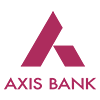


An Car Loan is a loan that person takes out in order to purchase a motor Car. Car Loans are typically structured as installment loans and are secured by the value of the Car being purchased. Car Loan is a type of secured loan, which means that the borrower must up a valuable item to serve as collateral. If the borrower is unable to pay back the loan, the lender can then seize the collateral and sell it in order to recoup their losses. Since auto loans are used to purchase motor Cars, the Car that is being purchased is what serves as collateral.
Bank Name
Interest Rate Range
Loan Amount
EMI Per 1 Lac

HDFC Bank
Car Loan
07.95% - 10.40%
Up To 100% of Cars Cost
₹ 1556 Per Lac

Axis Bank
Car Loan
07.35% - 14.50%
Up To 100% On-Road Price
₹ 1556 Per Lac

ICICI Bank
Car Loan
6.70% - 13.25%
Up To 100% On-Road Price
₹ 1495 Per Lac

PNB Bank
Car Loan
7.55% - 13.75%
Up To 100% On-Road Price
₹ 1536 Per Lac

SBI Bank
Car Loan
7.70% - 10.15%
Up To 100% On-Road Price
₹ 1544 Per Lac

Bank of India
Car Loan
08.09% - 12.95%
Up To Rs. 2 Cr
₹2,071 Per Lac

Bank of Baroda
Car Loan
07.00% - 13.00%
Up To Rs. 1 Cr
₹1,980 Per Lac

Canara Bank
Car Loan
7.35% - 9.90%
90% of On Road Price
₹1,997 Per Lac

Union Bank of India
Car Loan
07.40% - 10.00%
85% of On Road Price
₹1,999 Per Lac

UCO Bank
Car Loan
07.35% - 10.00%
85% of On Road Price
₹1,997 Per Lac

IDBI Bank
Car Loan
07.35% - 10.00%
90% of Ex-Showroom Price
₹1,997 Per Lac

Kotak Mahindra Bank
Car Loan
06.50% - 9.00%
Up to 90% of The Car Value
₹1,957 Per Lac

Bandhan Bank
Car Loan
7.50% - 9.05%
Up to 90% of The Car Value
₹2,004 Per Lac

IDFC First Bank
Car Loan
07.49 % 09.05 %
Up To Rs. 50 Lac
₹2,003 Per Lac
₹
500000
36
months
10
%
Monthly EMI
₹
₹ 32,124.56
Total Interest
₹
10,622.78
Principal Amount
₹
500000
Payable Amount
₹
160,622.78
| Pay No. |
Begining Balance | EMI | Principal | Interest | Ending Balance |
|---|---|---|---|---|---|
| 1 | 150000.00 | 32124.56 | 28637.06 | 3487.50 | 121362.94 |
| 2 | 121362.94 | 32124.56 | 29302.87 | 2821.69 | 92060.07 |
| 3 | 92060.07 | 32124.56 | 29984.16 | 2140.40 | 62075.91 |
| 4 | 62075.91 | 32124.56 | 30681.30 | 1443.26 | 31394.61 |
| 5 | 31394.61 | 32124.56 | 31394.64 | 729.92 | -0.03 |
Whether for business or for personal use, owning a Car is a real dream for many. When you consider a Car Loan, you are likely to do your due homework in checking for affordability and eligibility. While you must get a Car loan from a lender who has banking expertise in auto loans to get the best rate and comfortable repayment options, you also need to check how much loan you are likely to get and what your EMI looks like.
Age: Minimum Age: 18 yrs to Maximum Age: 75 yrs
Salary: Rs.10,000 per month (minimum)
Employment Type Stability: Salaried or Self-employed individual/ partnership 3 yrs. (minimum) total experience/yrs. in business/profession;2 yrs. (minimum) in current post/business/profession
Type of Car : New or used
Residence Area Stability: Urban/Semi-urban/Rural 1 yr. (minimum) stay at current residence
When you apply for a Car Loan, you will have to submit a set of documents so that the bank can verify the information and approve your loan request. The documents basically include proof of identity, proof of address, proof of age, proof of income, bank statement, and proforma invoice among others. With a wide range of Car Loan products available in the market, it is no longer a distant dream for a middle-class family in India to own a Car. Most major financial services offer Car Loans. Of late, the process involved in getting a Car Loan has become simple through the online application process. With proper documents and paperwork, some financial institutions even offer 100% financing to buy a Car.
Other charges on Car loans are: Interest rate, preclosure fee, part-prepayment charge, late payment fee, swap charges, stamp duty, and service charges among others.
Part Pre-payment Charges: Part pre-payment refers to a situation wherein a customer pays in advance a certain share of his Car loan before the actual due date. It also helps in reducing the interest burden. Part-payment reduces the interest income for the Bank, and the Bank charges a certain penalty against it known as pre-payment charges.
Charges for late payment of loans: There are no fixed late payments for all the banks the cost hovers around 2% per month on the outstanding instalment. Miscellaneous charges: There are certain miscellaneous charges as well like, Stamp Duty, Service charges, Swap Charges, Bounce Charges, Car loan cancellation charges, GST on loan, Renewal fees, Other government taxes, Levies, etc.
If the borrower pays the loan amount well before the pay-off date, he's charged a particular penalty by the bank. Because the lender doesn't get the anticipated interest, the penalty usually acts as compensation. The Car Loan foreclosure penalty amount depends on the principal outstanding, interest outstanding, and also at what point of the tenure the loan is being paid off.
There are a number of repayment modes which are offered by lenders. Although these modes might differ from lender to lender, the most common modes of repayment can be summed up as follows:
If you've availed of a Car Loan and need additional funds for purposes like home renovation, wedding, medical emergencies, etc. you'll take a top-up loan on your existing Car Loan. the best benefit that this feature offers is that it's processed quickly and requires minimal documentation because the lender will have already got your details. You can get a top-up loan on your existing Car Loan for up to 100% of its value if you maintain a transparent payment record for a minimum of 9 months. This requirement may vary from lender to lender.
Car Loan balance transfer may be a facility to transfer the outstanding automobile loan balance from an existing bank to a different bank at lower interest rates. If you're paying a better rate of interest on your loan than the market rate, then you'll prefer to transfer your loan to a different bank that gives more flexibility at lower rates. Before making a choice there are few things that a borrower should confine in mind like what he/she is gaining from the transfer, are they eligible for transfer, assess the standard service of a replacement lender, etc.
Experienced Loan Advisor
Multi Bank Option
Free Door step Service
End to End services
Transparency & Safety
Referral Program
A Car Loan is a borrowing instrument that a lender such as a bank or NBFC (non-banking financial company) provides to an individual allowing him/her to purchase a Car. Car Loans have gained popularity in recent times as instead of being a luxury item or a symbol of status, Cars have grown to become an essential commodity for the continuously growing middle class of India. With the increased popularity of Car Loans, most banks and NBFCs currently offer this type of loan to individuals who have a good credit history. One point to keep in mind regarding a Car Loan is the fact that this loan invests in a depreciating asset i.e. the asset (Car) bought using this loan is in fact going to cost less over time.
First, shop around for all the various finance schemes on Car Loans available in the market • by applying on deal4loans.com. You can then decide from margin money schemes, advance EMI’s schemes and deposit payment schemes. Usually margin money schemes offer the best terms, but at the end of the day, the effective interest rate of the loan is what essentially matters. This method provides a common podium for assessment of different schemes by discounting on the basis of cash flows.
There are 2 types of interest rates: the fixed and floating rate. In the fixed rate you will have a fixed EMI which you will pay till the duration of the loan this is also safer. With the floating rate the interest rate varies according to the economic situation and tends to change. The interest rate starts from 8.80% and varies from bank to bank. It will depend on your credit score, salary, the loan amount you want and the tenure.
A lot of financial institutions offer up to 90 per cent of the Car value as auto loan. However, the final value might vary with the lender. They check factors such as Car cost, type and value in the second hand market while deciding the amount of loan to offer. Some banks might even lend 100 per cent of the Car value.
The maximum loan amount approved may vary from one bank to the other. Usually, banks approve loan amounts that range from 80%–90% of the Car’s on-road price. Few banks even lend 100% of the Car’s ex-showroom price. In addition to these criteria, the percentage of financing offered depends on the price, type of Car (standard/ premium) and whether you are applying for a new or pre-owned Car.
On an annual reducing basis, the outstanding principal gets adjusted once a year while in the monthly reducing balance; the principal gets adjusted on a monthly basis. Therefore, more of your principal gets repaid on a monthly reducing basis than on an annual basis. However, some banks calculate EMI on a daily or a quarterly basis too.
The EMI due date or cycle is dependent on the borrower. It can be the first of the month or 5th of the month. The borrower can choose the day as per their convenience. Some banks do give a set day as their processing day is automated.
It is best to pay your EMI on time. Most banks will tolerate any late payments for 1 or 2 times and if you don’t pay your EMI at all the bank has every authority to seize the Car. Furthermore if you default on EMI your credit score will take a hit which will spoil your chances of getting any form of credit in the future.
There are various factors to consider while taking a Car Loan in order to assure the borrower gets the best possible deal. Factors such as:
Loan Amount: Up To 100% On-Road Price | Rate of Interest (APR)*: 06.00% to 20% | Repayment Tenure: 12 Months to 60 Months | Processing Fees: 0.75% to 2.50% + GST as applicable | Prepayment/ Foreclosure: Nil (After 12 months) or 1% - 4% (Before 12 months)
Illustration: For e.g. If a person is 18 years old, he can avail a loan of Rs. 20.49 lakh at an interest rate of 6.90% for a tenure of 5 years provided he has no other existing financial obligations such as a business loan.
* APR - Annual Percentage Rate